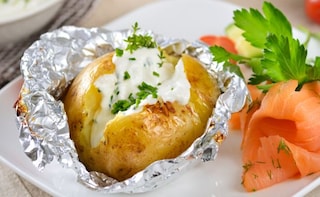There is no escaping aluminium. With 8% of the earth’s crust comprising it, aluminium is the most abundant metal. Thus, it finds its way into our daily lives with ease. We ingest aluminium in small quantities through various means - the food we eat, the water we drink, and much more. So the question that arises is are we at some health risk?.
Where All Does Aluminium Hide?Aluminium is present in differing quantities in salt, spices, corn, tea and other foods. Not only that, it is also used during the purification process of water (in the form of aluminium sulphate) and thus may be present in water. Medicines like antacids or even antiperspirants may contain aluminium.
Harmful Effects of AluminiumA number of studies done between 1988 and 2000 suggest neuro-toxicity of the metal, drawing link between Alzheimer’s and exposure to high levels of aluminium. This correlates with the advent of industrialisation. However, the WHO concluded that there was no evidence of a primary causative role played by the metal in the risk of Alzheimer’s. High intake of aluminium may also be harmful to people suffering from bone diseases or renal impairment according to studies. Further, the growth rate of brain cells in humans is adversely affected by aluminium.A study conducted by Ghada Bassioni and Associates from Ain Shams University studied the ill effects of using aluminium foil while cooking. They concluded that pots and pans may be oxidised and thus have a layer protecting the food from the aluminium but baking food in foil is not ideal. This is further explained below.
Cooking in Aluminium Pans or FoilMany cooking utensils are made from aluminium as it is durable and cheap. However, the ill effects of high exposure to the metal are well documented. Thus, most branded cookware would mention that the utensil is oxidised and safe for use. However, one must be careful on how these are cleaned. Any scrapes or scratches in the inner side would lead to aluminium getting leached into the food. Be careful as to not use sharp spoons too, try to use wooden or bamboo spoons to cook or take the food out.Cooking food wrapped in aluminium foil, however, is avoidable. This is especially true for acidic or spicy foods. The research conducted by Ghada and associates found that “the migration of aluminium into food during the cooking process of food wrapped in aluminium foil is above the permissible limit set by the WHO.” The acidity reacts with aluminium and allows the metal to leach into the food. The likeliness of this happening is far more with acidic and liquid foods like tomato and lemon juice than with foods containing salt or alcohol. Spices in food further aggravate this leaching and aid aluminium getting dissolved into the food contained within.About the Author:Harnoor Channi-Tiwary is a marketing specialist who wandered into the world of writing and never left. For more than a dozen years, she has been writing about food and travel. Harnoor steered the editorial direction for NDTV Food till January 2017 as Head (Content) prior to which she worked with Marryam H Reshii on the Times Food Guide 2014 and authored an e-book amongst other notable works. She blogs at TheThoughtExpress, tweets as @HCdines and now lives in Singapore with her husband and six year old daughter (who's first word reportedly was 'yummy' and not mummy).Disclaimer:The opinions expressed within this article are the personal opinions of the author. NDTV is not responsible for the accuracy, completeness, suitability, or validity of any information on this article. All information is provided on an as-is basis. The information, facts or opinions appearing in the article do not reflect the views of NDTV and NDTV does not assume any responsibility or liability for the same.
Where All Does Aluminium Hide?Aluminium is present in differing quantities in salt, spices, corn, tea and other foods. Not only that, it is also used during the purification process of water (in the form of aluminium sulphate) and thus may be present in water. Medicines like antacids or even antiperspirants may contain aluminium.
Advertisement
Harmful Effects of AluminiumA number of studies done between 1988 and 2000 suggest neuro-toxicity of the metal, drawing link between Alzheimer’s and exposure to high levels of aluminium. This correlates with the advent of industrialisation. However, the WHO concluded that there was no evidence of a primary causative role played by the metal in the risk of Alzheimer’s. High intake of aluminium may also be harmful to people suffering from bone diseases or renal impairment according to studies. Further, the growth rate of brain cells in humans is adversely affected by aluminium.A study conducted by Ghada Bassioni and Associates from Ain Shams University studied the ill effects of using aluminium foil while cooking. They concluded that pots and pans may be oxidised and thus have a layer protecting the food from the aluminium but baking food in foil is not ideal. This is further explained below.
Cooking in Aluminium Pans or Foil
Advertisement
Advertisement
For the latest food news, health tips and recipes, like us on Facebook or follow us on Twitter and YouTube.
Advertisement
